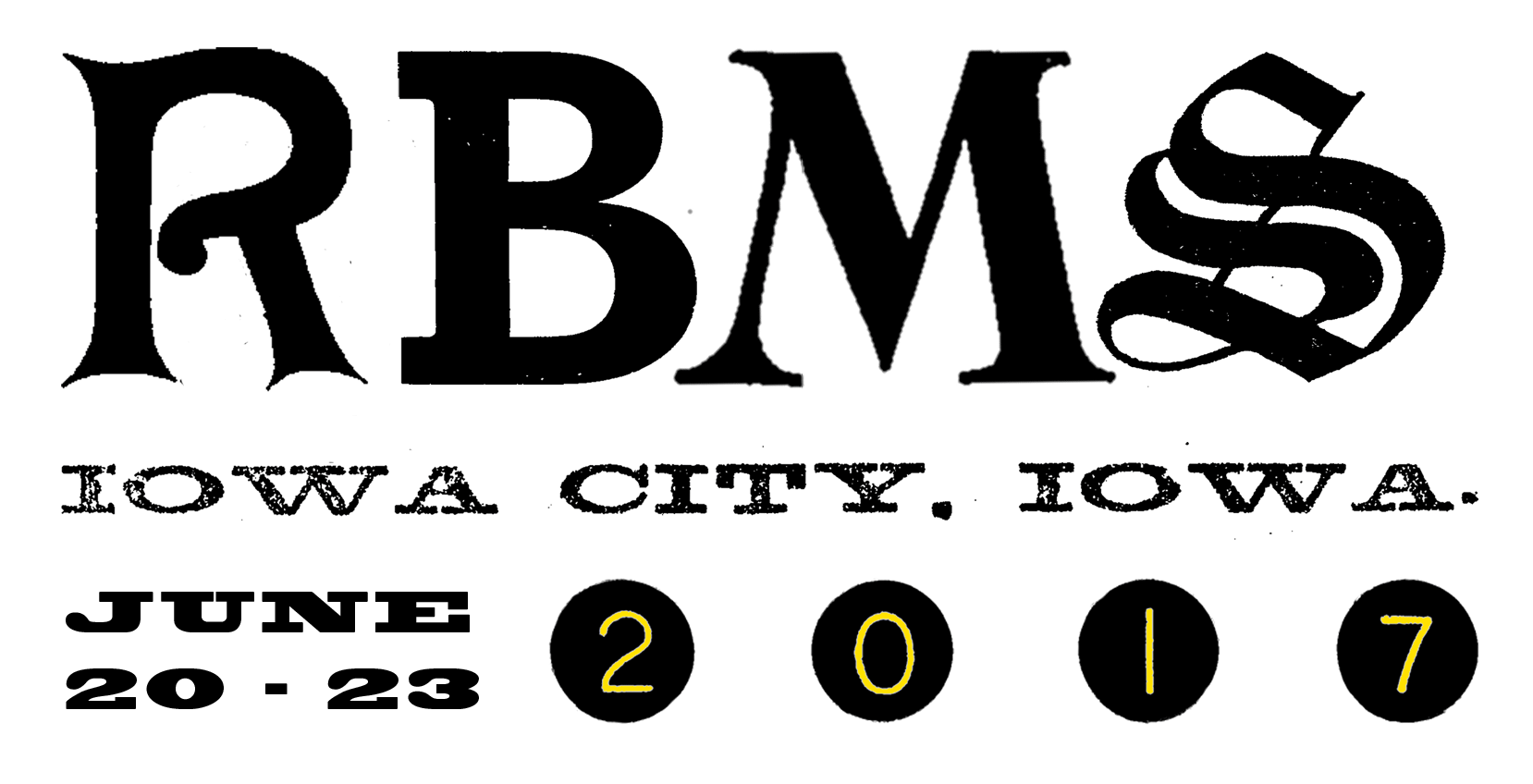Conference Seminars
Seminars are one of the main types of sessions held at RBMS. What are seminars, and how are they different from other types of RBMS programming? Seminars can take a variety of forms, including a panel of speakers, lightning talks, interactive sessions, or panelists responding to questions from a moderator. But they all have in common a focus on an educational component; they move beyond case studies or theoretical presentations (these types of presentations are more often found in the short papers). In other words, attendees should come out of seminars with ideas they can take back to their own work or institution.
Seminars are proposed in time for the ALA Annual conference, where they are discussed in the committee’s open meeting. Comments and suggestions are sent back to the proposers, who have a chance to make changes or additions and before the committee votes. Once a seminar has been accepted, it is assigned a liaison, who will work with that seminar’s organizer as they find speakers and develop the content and format of the seminar. Seminar speakers are encouraged to speak frequently and work closely together as they prepare their session, so that their content is coordinated and relevant to each other but not overlapping.
Seminar topics are wide-ranging, and are not necessarily tied to the conference theme. We hope you can attend some seminars in Iowa City, where the topics will range from cataloging today’s rare materials to pop-up exhibits, from data-driven decision making to 3D printing book history. If you are interested in organizing a seminar, or learning more about the seminars process, the call for seminars proposals for RBMS 2018 can be found here.
This is the first in a series of posts on seminars; the others will feature perspectives on organizing seminars from a liaison and an organizer.
–Sarah Horowitz
Curator of Rare Books and Manuscripts
Head of Quaker & Special Collections
Haverford College Libraries
